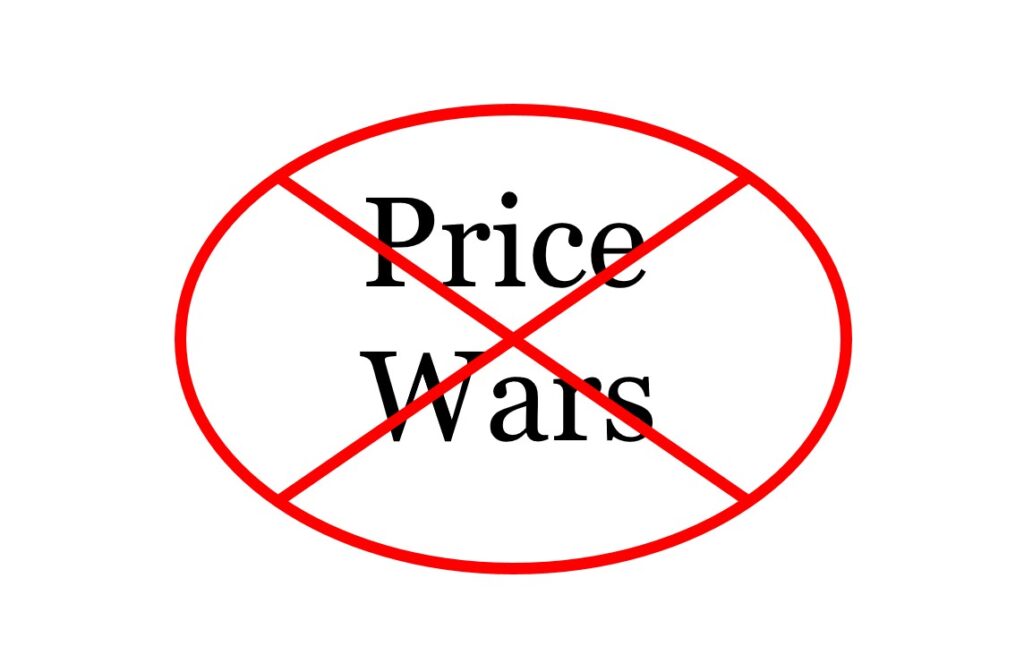The problem of price wars is a significant one for businesses.
The Problem of Price Wars
Consumers generally love price wars. It is possible for such conflicts to hurt consumers long-term but in the short-term lower prices share more of the value created by the business. This makes consumers happier. Managers can more easily see the downsides of overly competitive pricing. Lower prices mean lower margins. If everyone is cutting price, you probably aren’t gaining too much in the way of volume to make up for the lower margins given the relative prices are similar. Lower margins and similar volumes just mean lower profits.
That said managers often seem to feel that they have to enter price wars. They feel obliged to show aggression or maybe they feel that rivals force them into it. Akshay Rao, Mark Bergen, and Scott Davis discuss everything about price wars in a HBR article. (Full disclosure Mark was my PhD advisor at Minnesota where Akshay is also a professor.)
Advice for Price Wars
The authors detail a considerable amount of practical advice for managers. The key thing is “stop the war before it starts” (Rao, Bergen, and Davis, 2000, page 109). One way to do this is to reveal your intentions. Tell rivals that you will retaliate by giving price-matching guarantees. Make it clear to your competitors that if they attack, you will defend, and (hopefully) this makes it less likely they will attack. Indeed prices can even go up with price matches. “…the data suggest that Food Lion raised its prices after its competitor announced they would match Food Lion’s prices” (Rao, Bergen, and Davis, 2000, page 109). Not an ideal outcome for consumers.
Compete on Quality
The authors also note that one approach is to refuse to compete on price. Instead, compete on quality. They discuss how in recessionary times The Ritz offered more, not fewer, services. The manager didn’t want to dilute the quality of the offering. Low prices would likely mean the need to reduce services but increased quality allowed for greater differentiation and less need to compete on price.
Price wars can be disastrous for firms (though often good for consumers). Generally speaking the advice for managers is don’t fight them. These authors lay out more detail on what to do about price wars.

For more on pricing see here, here, and here.
Read: Akshay Rao, Mark Bergen, and Scott Davis, (2000) How to Fight a Price War, Harvard Business Review, March-April, pages 107-116.
